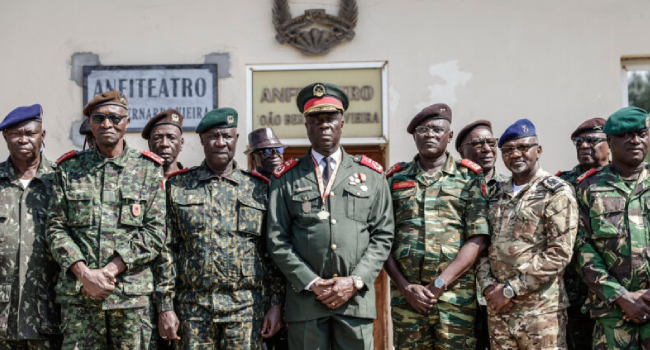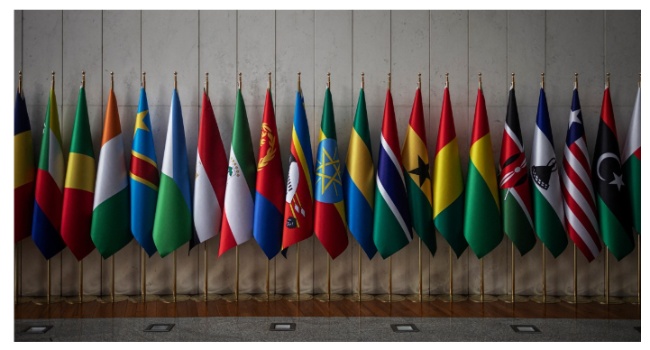The African Union (AU) has suspended Guinea-Bissau following the coup in the West African country that overthrew President Umaro Embalo.
The AU decided “to suspend Guinea-Bissau from its bodies with immediate effect,” chairman Mahamoud Youssouf told AFP on Friday.
READ ALSO: Guinea-Bissau’s Embalo Leaves Country As Military Appoints Leader After Coup
The regional body’s decision came hours after the Economic Community of West African States (ECOWAS) suspended the West African nation from its decision-making bodies over the coup.
ECOWAS’ Mediation and Security Council (MSC) took the decision after an emergency meeting late Thursday.
“The MSC decides, in accordance with the provisions of the ECOWAS Protocol on Democracy and Good Governance 2001 (A/SP/12/01), to suspend Guinea-Bissau from all ECOWAS decision-making bodies until the restoration of full and effective constitutional order in the country,” it said at the end of the virtual meeting under the chairmanship of Julius Maada Bio, President of Sierra Leone and chairperson of the Authority of ECOWAS Heads of State and Government.
Military officers took over power in Guinea-Bissau on Wednesday, about three days after the country’s disputed presidential and legislative elections.
The officers immediately suspended the nation’s electoral process and closed its borders.
They also stopped the announcement of the election results and appointed the chief of staff of the army, General Horta N’Tam, as the country’s new leader for one year.
After initially being arrested by the military, Embalo fled to Senegal on Thursday.
Opposition presidential candidate Fernando Dias, who claims to have won the election, told AFP that he was “safe” and in hiding in the country.
International Response
The military takeover has been widely criticised.
United Nations Secretary-General Antonio Guterres denounced the “unacceptable violation of democratic principles”.
Sandwiched between Senegal and Guinea, Guinea-Bissau has already experienced four coups and numerous attempts since gaining independence from Portugal in 1974. Its election results are often contested.
Among the world’s poorest countries, it is also a hub for drug trafficking between Latin America and Europe, a trade facilitated by the nation’s long history of political tumult.
Guinea-Bissau joins a number of other countries that suffered suspension by the AU following coups across the continent, including in Mali, Burkina Faso, Niger, Sudan, and, more recently, Madagascar.
Sanctions were lifted in April against Gabon, a Central African country, that had been suspended after the overthrow of President Ali Bongo.




